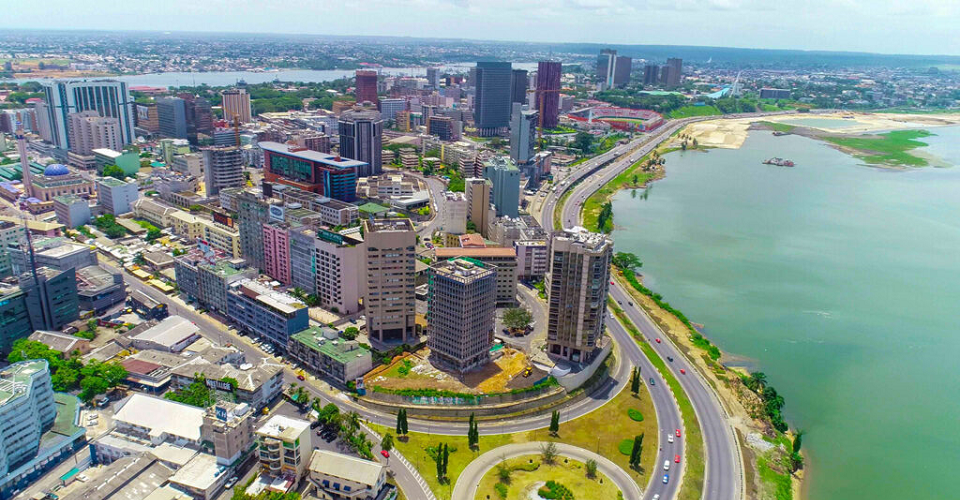By Victor Akhidenor
The 34th edition of the Africa Cup of Nations, known for short as the 2023 AFCON and for sponsorship purposes as the TotalEnergies 2023 Africa Cup of Nations, will kick off on January 13th 2024 in Ivory Coast.
This is not the first time the West African country is hosting the rest of the continent. Most football fans know that in 1984, the host didn’t make it out of the group stage to the chagrin of their teeming fans. But here are almost 34 things most soccer buffs don’t know about Ivory Coast.
Let’s start on familiar terrain – football.
The sport is highly popular in the country. The national team, known as the Elephants, has gained continental and international recognition. They won the Afcon in 1992 and 2015; and were runners-up in 2006 and 2012. Several Ivorian players, including Youssouf Fofana, Laurent Pokou, Yaya Touré, and Didier Drogba, have achieved success in top European leagues.
More money, more problems: Debate on Black Tax in African football returns
We’re planning to form revolutionary party – Femi Falana
Now let’s spread our tentacles.
Do you know that Ivory Coast is the world’s largest producer of cocoa beans, a key ingredient in chocolate? The country and Ghana account for more than 50 percent of the world’s cocoa and both play a significant role in the global chocolate industry.
Ivory Coast is home to over 60 different ethnic groups, each with its unique languages, traditions, and customs. The major groups are the Baoule, Bete, Senoufo, and Malinke. With over 250 ethnic groups, Nigeria is poles ahead.
We bet you don’t know that the Basilica of Our Lady of Peace, located in Yamoussoukro, is one of the largest Christian churches in the world. It has an area of 30,000 square metres and it is 158 metres tall. It was built by former President Felix Houphouet-Boigny, the first President of Ivory Coast. He served the country for over three decades and played a key role in gaining the country’s independence from French colonial rule.
Ivory Coast has its version of Abuja and Lagos. Yamoussoukro is the political capital of the country, while Abidjan serves as the economic capital. Unlike Nigeria’s, Ivory Coast’s dual-capital system is unique among African countries.
It’s a well-known fact that the country experienced a period of political instability following the 2010 presidential election when both Laurent Gbagbo and Alassane Ouattara claimed victory. This led to a brief conflict until Ouattara assumed office.
UNESCO has 1199 World Heritage sites across 168 countries and a part of Mount Nimba, located in the Ivory Coast, is one. Mount Nimba is known for its rich biodiversity and is home to numerous plant and animal species. The country is home to several other national parks and reserves, such as Taï National Park (another UNESCO World Heritage site). It protects the tropical rainforest with diverse flora and fauna.
The A in BEAUTY is Assouinde, a coastal town in Ivory Coast! It’s known for its picturesque beaches and is a popular destination for tourists seeking a more relaxed atmosphere away from the bustling cities.
Now, let’s talk about food.
Ivorian cuisine is diverse, with popular dishes such as attieke (cassava couscous), aloco (fried plantains), and kedjenou (a slow-cooked chicken stew). Make sure you have a bite when next you visit the country.
Nine facts down, twenty-five to go! But we don’t intend to bore you to death. So, we shall provide you with a list of additional facts about the Ivory Coast.
Currency
The official currency of Ivory Coast is the West African CFA franc.
Independence
The country gained independence from French colonial rule on August 7, 1960.
Mask Festival
The Dan people in Ivory Coast are known for their intricately carved masks, and there is a popular Mask Festival in the region.
Official Language
French is the official language, reflecting the country’s colonial history.
Religious Diversity
While Islam and Christianity are the dominant religions, there is also a significant population practising indigenous beliefs.
Man-made Lakes
The country has several man-made lakes, including Lake Kossou, which was created by the Kossou Dam.
UNOCI
The United Nations Operation in Cote d’Ivoire (UNOCI) was established in 2004 to support the country’s peace process.
Graffiti Culture
Abidjan has a vibrant street art scene, with graffiti and murals contributing to the city’s urban culture.
Agbada Fashion
Traditional attire like the Agbada is commonly worn during special occasions and celebrations. Stolen from the Yorubas in Nigeria? That’s a story for another day.
Polygamy
Polygamy is legal in the country, and it is not uncommon for men to have multiple wives.
Agriculture
Apart from cocoa, Ivory Coast is also a significant producer of coffee, rubber, and palm oil.
Beaches
The country has beautiful beaches along its coastline, including Grand-Bassam, a UNESCO World Heritage Site.
National Anthem
The national anthem of the Ivory Coast is called L’Abidjanaise.
Dance and Music
Traditional dances like Zaouli and music genres like Coupe-Decale are popular in the country.
Cocoa Crisis
Ivory Coast faced a cocoa crisis in the 2010s, leading to efforts to improve fair trade practices in the industry.
Mount Tonkoui
The highest peak in Ivory Coast, Mount Tonkoui, stands at 1,275 meters (4,183 feet).
Bouaké
Bouaké is the second-largest city and an important centre for commerce and education.
Fulanis
The Fulanis, a nomadic ethnic group, are found in the northern regions of Ivory Coast.
Koutoukou Dam
The Koutoukou Dam is important in the country, providing hydroelectric power.
Museum of Civilizations
Abidjan hosts the Museum of Civilizations, showcasing the country’s diverse cultural heritage.
Cocoa Board
The Coffee and Cocoa Council (CCC) oversees the production and export of cocoa in the Ivory Coast.
Baoulé Masks
Baoulé masks, crafted by the Baoulé people, are highly regarded for their artistic and spiritual significance.
Gouro People
The Gouro people are skilled in wood carving, creating masks and sculptures.
Danse de la Côte d’Ivoire
Ivory Coast has a rich dance tradition, and the “Danse de la Côte d’Ivoire” showcases various styles.
We hope you enjoyed reading about the sights and sounds of the Ivory Coast. However, these facts provide just a glimpse into the diverse culture, history, and geography of the host of the 34th Afcon. A firsthand experience is the best teacher!

 Join Daily Trust WhatsApp Community For Quick Access To News and Happenings Around You.
Join Daily Trust WhatsApp Community For Quick Access To News and Happenings Around You.


